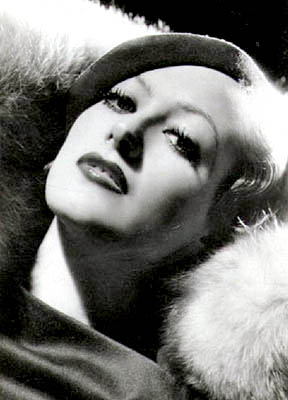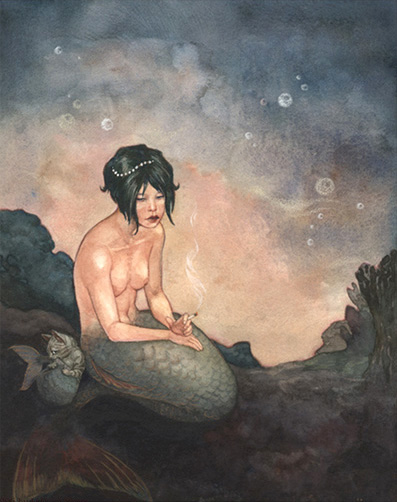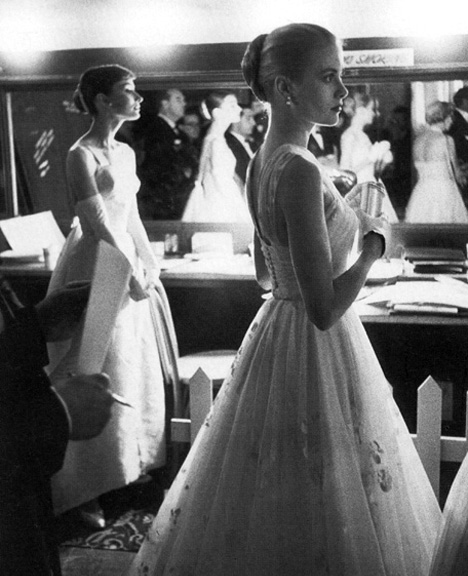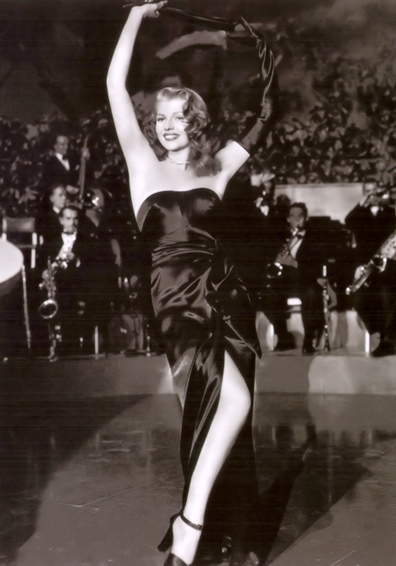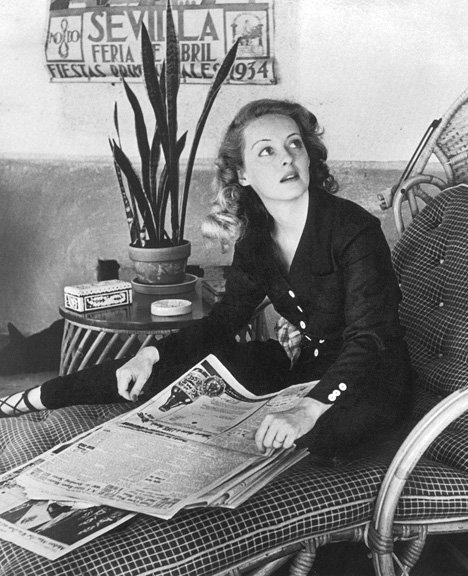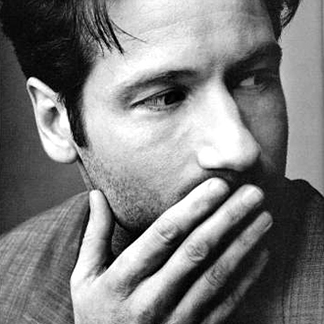I've always loved making those lists. If you could only take five albums (and, presumably, a device with which to play them) to a desert island on which you would be stranded - which five would you choose? Which five books? Which five films released before 1980? You get the idea. We've all played this game in one form or another. Categories get progressively more specific the longer you talk about it, and people have posted lists on wildly varying themes.
This is mine.
My Desert Island, All-Time, Top Five Portrayals of Women in Film
I'm not saying that these are THE definitive films of this nature. They just do it for me. Films about women I can respect, women I can understand. Portrayals of women that I would want my daughter to see. They are also all movies I could watch over and over again on a desert island without ever growing tired of them. These are women I want to watch.
1. Alien, 1979
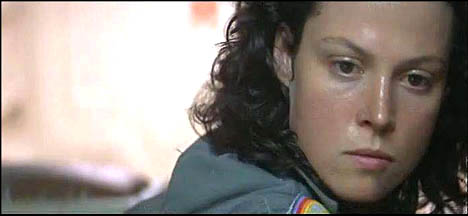
Ripley was written to be a man. In the original script, while the writers used androgynous names to imply that most roles were essentially unisex, they never considered Ripley being cast as a woman. A strong female lead in science fiction or action films was, at the time, practically unheard of. Instead of a classic male lead, however, the young, statuesque Sigourney Weaver stepped into the role of the sole survivor of the Nostromo, changing the genre forever. Yes, I prefer this first film to the tremendously popular sequel, Aliens. Why? Because the sequel makes it about Ripley’s maternal instincts. The final battle of Aliens casts her as the raging protective mother guarding her adopted cub. In Alien Ripley wants at first to hold her crew together and maintain control of her ship and, in the end, is simply struggling to live.
Alien isn’t about a woman, it’s about a human being - a feat rarely accomplished in film since this landmark casting decision.
Also important to note - Alien shows us a strong female protagonist who is sexual without in any way being weak or filling the exaggerated buxom stereotype. An female action hero living in a harsh, gritty and - new to the genre - grimy vision of the future. A world where the scapeships have mechanics wearing greasy coveralls and the women don't care what their hair looks like.
In the spirit of full disclosure, I should admit that while I STRONGLY prefer Alien to the subsequent films, I own them all. In fact, I own the absurdly extensive Alien Quadrilogy. Ripley is one of my all-time favorite fictional characters and I think Sigourney Weaver is amazing.
2. Under The Tuscan Sun, 2003
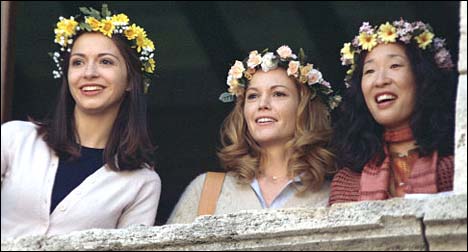
The film only holds a vague resemblance to Frances Mayes' popular book, which I am very fond of, but the adaptation has the author's seal of approval. The book was really a chronicle of a house being renovated and Mayes' account of how she fell in love with Italy. It is richly detailed, makes you yearn to travel and has absolutely nothing resembling a plot.
The film stars Diane Lane as a younger, highly fictionalized version of Mayes who is struggling with a divorce. A very messy, unexpected divorce. Watching previews, I assumed the film would be fluff. Far from it, the film is about a woman recovering from tremendous loss, finding strength and hope in the rediscovery of herself, in her friends and in a beautiful foreign country. The director Audrey Wells, who also wrote the screenplay, brings men into Frances' life again and again but refuses to make any of them a "solution." In the end, as in life, she has to find her own happiness before she can find happiness with someone else.
I can watch this movie again and again. I never tire of it. I go on about it a great deal here. Sandra Oh as the best friend in that brilliant platonic life partner sort of way (if you have a friend like this, and I do, you cannot help but be thrilled by the brilliant chemistry between Lane and Oh and how very true to life their friendship is). And as I said in that previous post, "I am particularly in love with the performance of Sasa Vulicevic as one of the Polish men working on her home. He only says a few words in the film and none of them in English, but there is clearly this unspoken adoration he has for Frances that has nothing to do with the story but which adds brilliantly to the richness of the film. His sadness when saying goodbye after the house has been finished just kills me. It’s the little things that make this film great."
I have to go watch this movie again now.
3. Girlfight, 2000
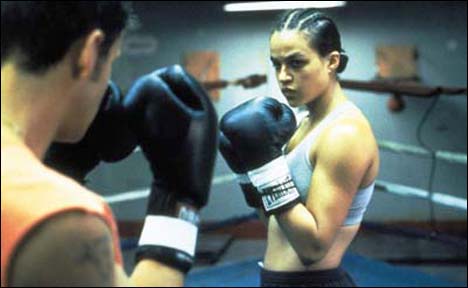
Michelle Rodriguez, in her first film role (in fact, in her first attempt at acting at all), plays an angry young woman who wants to learn to box. Maybe to feel empowered in a world that disregards her, maybe to express the anger that just seethes out her, maybe to prove she has just as much value as her male sibling. But she wants this. Badly. In boxing, her character Diana Guzman finds a place in the world. Finally sees herself as capable.
Apparently Rodriguez was such a natural talent that the trainers who worked with her on the film tried to convince her to go pro. So that part of the film is very real. But director Karyn Kusama will be the first person to tell you that, in using this film as a metaphor for male/female relationships, she had to choose between realism and being true to the intent of her narrative. In order to address some issues fully, Kusama has to have her female lead hold her own against male boxers who, while specified in the film as being in her own weight class and therefore reasonable sparring partners, clearly outweigh her in reality. Without allowing Diana to compete on an even playing field, however, Kusama would have been unable to explore the themes she wished to.
I found the relationship between Rodriguez's character and Paul Calderon as her father really strikingly convincing. Calderon's strong supporting performance is vital to the film as is Rodriguez's ability to communicate a great deal without speaking. Girlfight is a beautiful film. I love it as an intricate character study. I love it as a portrayal of women in sport. I love it as an examination of what happens to personal relationships when women sucessfully compete against men in a traditionally male arena.
4. Muriel’s Wedding, 1994
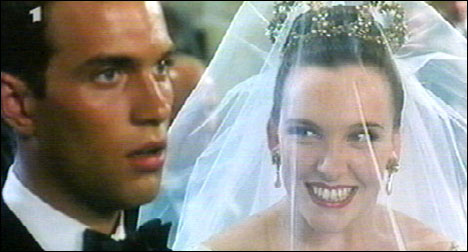
Toni Colette is a beautiful woman and a tremendously talented actress. Most of us didn't know who she was, however, before she gained 4o pounds to play a lost, underachieving dreamer named Muriel Heslop. Insead of going the traditional route of movieland makeovers, Muriel tells embarassing lies, steals money from her parents, humiliates herself and generally makes a complete disaster of EVERYTHING. And while I sat there in the theater wincing in discomfort, I recognized a grain of myself (and most every woman I know) in those disasters. The things we do when we are young and want too badly to be liked. The foolish things we say when we want more than anything to just fit in. The mistaken belief that a man wanting to marry us means we have greater value.
Muriels' Wedding is the chronicle of a woman making every possible mistake on her way to self discovery. In the end she is not the gorgeous, svelte woman we all know Toni Colette to be. She has lost some weight but only the weight lost inevitably from getting off her duff and getting out into the world. She goes from this horribly awkward girl to a woman who thinks she has it all figured out, having made herself into every one else's idea of a success, and then actually DOES figure her life out and learns that there is far more to succeeding in life than getting a man to walk you down the aisle. It is emotional, much of it is not remotely pretty, and it is uncomfortably honest while also being a bit over the top.
Oh, and there's and awful lot of ABBA. Considering how I feel about ABBA, this is the icing on the cake. A film in which, instead of becoming skinny or popular or getting a big promotion, a woman just becomes a better person. And learns how to be herself. And that might sound like a mundane change, but it's really quite wonderful.
5. The Big Chill, 1983
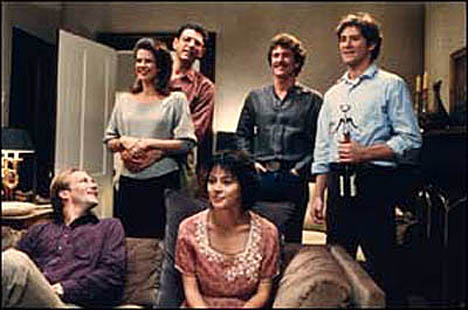
This may seem an odd choice, but aside from being just about my all-time favorite film, The Big Chill was the first film I saw as a girl that showed a group of men and women who felt completely equal to me. The women were doctors and lawyers as well as homemakers. The group of friends interacted as individuals who were all so different and distinct but completely equal and genuinely loving each other, sharing a genuine and unique bond in which their gender roles were irrelevant. It was also the first time I saw the idea of a single, successful woman conciously planning to get pregnant and raise a child on her own presented in popular media. I knew women could raise babies alone - my own mother was a single parent. But I feel it was a wonderful and significant choice that Kasdan made to present a woman making the CHOICE to do this in his film.
I can watch this film again and again. And beyond the fact that it just speaks volumes about the odd nuances of friendship, it explores human relationships in ways that go beyond gender while acknowledging the women as women. They are equal and sucessful without being sexless. I think this film was, for me, the first time I saw women portrayed as successful professionals in film without showing them one step behind the men, without the film being ABOUT their competition in the workplace. It revolutionized my concept of what adult women could be.
My favorite scene is of Glenn Close on the floor of her shower crying. It reminds you that, in the midst of this nostalgia, these people are grieving. As a group and individually, they are going through something incredibly difficult. I am fond of Glenn Close and it is, in my opinion, the most complex and nuanced performance of her career.
Oh, and my whole life, I've always wanted to live in that house.

And my "runner up" - because I want to include it, but probably wouldn't pick it to watch 20 bazillion times on a desert island because you can ONLY CRY SO MUCH:
6. One True Thing, 1998
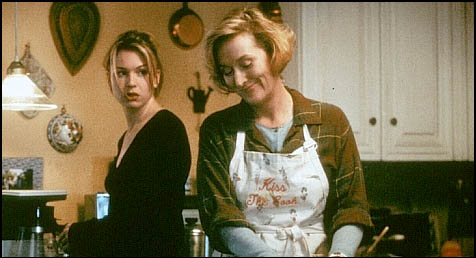
In this film, Renée Zellweger’s character is a driven young career woman who has to put her life on hold when her mother, played by Meryl Streep, is diagnosed with cancer. In awe of her father’s (William Hurt) success, Zellweger’s character worships him and, conversely, disdains her mother’s life of raising children and building a home. This film follows a woman leaving behind the illusions of her childhood.
One True Thing deals with an aspect of female relationships and gender roles too rarely addresssed in film. An entire generation of women grew up with only a small number of female role models in their life sucessfully pursuing careers. Our mother’s generation made the choice to enter the workforce, but was struggling against centuries of ill conceived notions about women - and not all of our mothers made that choice. So many women in my generation looked to their father as a role model when reaching adulthood and pursuing a career, leading to an acutely blind form of hero worship. This film is about moving past both our childhood concepts of who our parents are as well as recognizing the value of our mother’s contributions.
AND it makes me cry. A lot. Highly recommended... but maybe not desert island material. What with the dehydration concerns when one is stranded and all.
I'd love to hear other people's top selections. It's not just about the characters themselves, but how they stand up as a representation of women, real women, and what the filmmaker is choosing to say about our sex.

